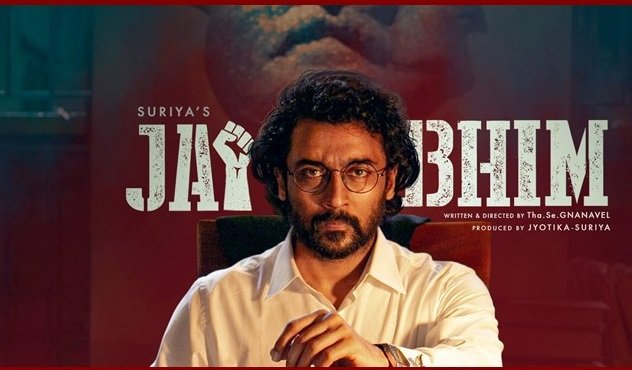Read in : தமிழ்
So, what’s the movie Jai Bhim about? It’s a gripping courtroom drama. It’s a human story of a tribal woman’s fight for justice. It’s about an idealistic lawyer and his equally idealistic associates. It’s about police brutality, or rather criminality. It’s about the uncaring and cynical ways of the establishment. It’s about a truly unfortunate, marginalized people called Irulars who can, recent anthropological studies show, claim to be among the earliest inhabitants of this land. Truest sons of the soil they are but live far beyond the fringes of society still. One still hears horror stories of them working as bonded labourers in brick kilns along with the poorest of migrants from Bihar. One still sees an ancient tribe not fully integrated into modernity and where the question of them being treated as museum pieces is still being debated.
Jai Bhim is also about reality or at least what used to be reality when amidst all the criminality and injustice there was still some hope; a feeling that somewhere, somehow there would be someone who will answer to morality and values. The reality that if we fought hard enough, searched hard enough, we would find justice. The reality that there were a few decent, honest people who would do the right thing. It was a time when reality was that there was hope. Jai Bhim talks about such a time and it was not so long ago.
It was a time when great battles were still being fought. Big causes were still alive. It was a time when the US and what it represented was only one reality and a better reality could be hoped for. It was a time when nations were still being born and some people felt they had a right to have a nation of their own. It was a time when India called itself socialist, as a worthwhile ideal to be hoped for.
It was a time when service was on paper the basis for the doctor profession and idealism still infused budding lawyers. It was a time when journalism was still a profession that promised a modest lifestyle in exchange for the pursuit of a higher calling. It was a time when journalists were respected as seeking an alternative profession that meant uncovering truth, not doing hackwork for agendas. It was a time when politicians did not flaunt wealth and honesty was still a virtue and when voters taking money from politicians was still shameful.

Justice Chandru
It was a time when a leftist lawyer like Chandru could fully live up to his potential while living for ideals including as a judge. It was a time when Leftists spearheaded the total literacy movement in the state in the hope it would trigger greater awareness and people’s struggles. It was a time when an activist like Kalyani was naturally honest and selfless.
Unfortunately, however, Jai Bhim was also a time when that time stopped being what it was. It was the time the Soviet Union collapsed. And those who thought a more humane, more just, more caring, less competitive society was possible and who thought the Soviet Union offered such a possibility realized it had been a lie all along. Socialism collapsed everywhere in the world, and with it, any realistic hope of an organized alternative.
Jai Bhim talks about a time when a professorial Sikh man dramatically upturned India. He taught Indians to want to be rich and made having one’s own business easy to aspire for. His policies brought wealth and prosperity to millions of Indians, made them middle class and rich even as it deepened inequality.
Jai Bhim talks about a time when India became unabashedly capitalist, and with that the country’s middle class dropped all aspirations towards higher callings, towards serving and towards fighting for justice for others. Jai Bhim events happened at an inflexion point in India’s and Tamil Nadu’s history.
Jai Bhim talks about a time when India became unabashedly capitalist, and with that the country’s middle class dropped all aspirations towards higher callings, towards serving and towards fighting for justice for others. Jai Bhim events happened at an inflexion point in India’s and Tamil Nadu’s history.
Today’s journalists are corrupt standardbearers of lies. Today’s doctors are busy chasing money in corporate hospitals. They prescribe tests and medicines to earn money, not make patients healthy. Today’s youth stories are about get-rich-quick aspirations. Today’s story about society is about individual triumph achieved immorally.
Today’s activist is either mentally unbalanced or serving a secret agenda. He is part of the NGO world with its own dishonest ways.
Today’s movie about police criminality, Visaranai, is unrelentingly bleak and offers no hope.
Today’s lawyers are about fixing the justice system and perhaps the judges, too.
Today, a Chandru would be hard to imagine, and a Perumalsamy would be doubly hard to find.
Read in : தமிழ்











